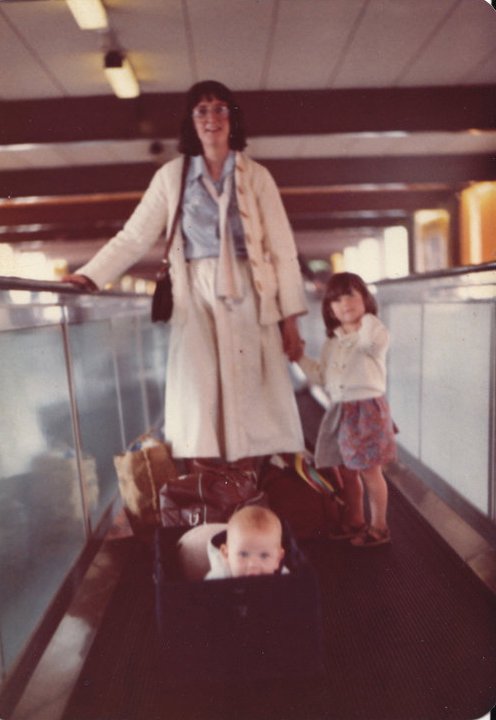
Where I’ll mostly be from now on.
The buzzword for this week is ‘unprecedented times’. And yes, we’ve never had a lockdown before. And we haven’t had a totally new virus, as far as we know, since medicine became a science. And it’s all a bit weird. There are people out in the streets – not too many today – giving each other a very wide berth, and we’re smiling and grateful. Our village has teddy bears in the windows so that small children on their daily exercise can go on a bear hunt. Over the river, the windows are full of rainbows, painted by the children who aren’t in school. The pharmacy has barrier strips up to stop us breathing over the staff on the other side of the counter, and sticky barrier strips on the floor to tell us how far apart to stand. If you believe social media there is a lot of baking, gardening, sewing and DIY going on, and we’re all learning new kinds of software so we can talk to families and friends.
I have never known churches to be closed, or an Easter without prospect of the Triduum (three days of special services on Holy Thursday, Good Friday and the Easter Vigil). But there are folk memories of the Penal Times when Catholics weren’t allowed to worship (or be educated, or own property for that matter), and Masses were held in secret, when a priest could take the risk of being in the country. I was at Primary school in Liverpool when the canonisation process of the 40 English Martyrs was begun, and several of them had local connections. Their story became part of school life – classes and Houses were named after them, and the children of Polish immigrants added their awareness of how practising your faith in a time of persecution went.
It isn’t the same now. We are doing this voluntarily, as an act of solidarity with the people in our society who are most vulnerable to illness, and in support of NHS workers who are going to be under enormous strain looking after them. Plus you can follow the Mass on social media, which turns out to be a very prayerful experience. And the comfort of being able to celebrate funerals and last rites is still considered essential, though not baptisms and weddings. (Another characteristic of our upbringing was that we were all taught how to baptise a person, it’s perfectly legitimate in an emergency, which I mention in case anyone in lockdown finds themselves worrying about it). But the feeling is oddly familiar.
I recognise ‘lockdown’ too. When I was much younger we lived in Sri Lanka for a while, in a village purpose built for engineers working on the Mahaweli Dam and their families. We had two children under two, the village was still under construction and I couldn’t drive, so we couldn’t go anywhere except on an occasional bus into Kandy. The monsoon failed, the reservoirs were running dry, which meant that the hydroelectric power was cut for hours at a time – and when the power was off, so was the water. And then there was a cholera epidemic. ‘We thought we’d better get round to chlorinating the water,’ said our parish priest. ‘Would you like a cup of tea?’
I feel like I just made all that up. How could all that happen to one person? But it did, and we survived, and some of it was very interesting. But we were glad to come home!

It’s very odd to be accessing my history just now. Although I know in my head that these things happened, I mostly don’t. But what I’m taking away from it is that these times are not quite without precedent. There is experience we can channel, memories we can share, skills we can pass on.
Leave a Reply